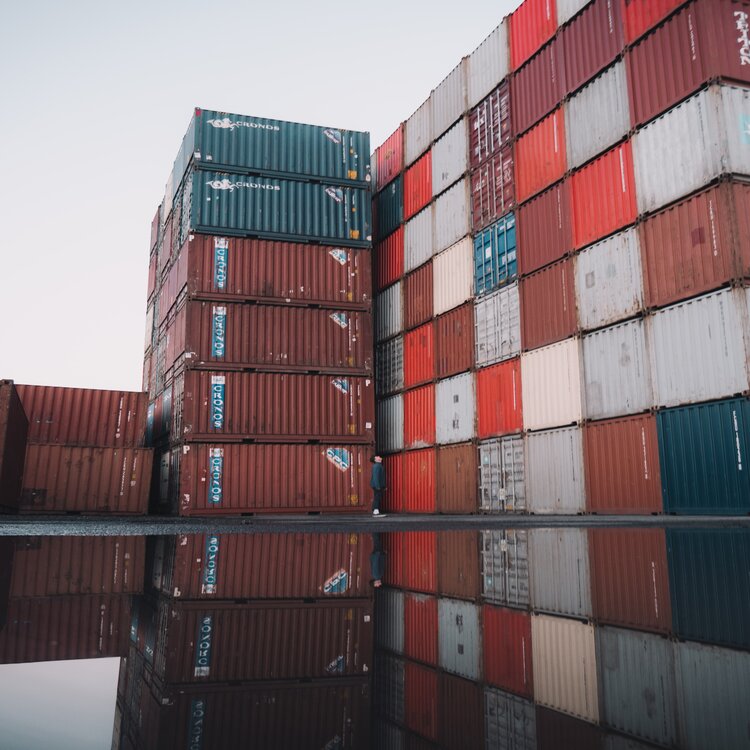Federal Budget 2018/2019 guide for international trade professionals

There was a time when customs tariffs accounted for 80% of the Commonwealth Government's revenue. While customs duty revenue may not make the headlines in 2018, there are still a number of interesting customs and trade takeaways from the 2018/19 budget.
Single window
The Government will spend provide $10.5 million to transform and modernise Australia's international trade supply chain to deliver more efficient and secure trade processing – unfortunately this money will not go towards upgrading the ICS, but will be another study on the viability of a single window for international trade documents.
Certificates of origin
Hidden in the budget papers was the statement that the Government will provide additional benefits for Australian Trusted Traders by removing the requirement to produce country of origin document for goods imported under certain free trade agreement.
Trusted traders will be keen to know:
- will this apply to all FTAs
- when will it apply
- can it be used for past imports to support a claim for refund
- do only importers need to be accredited or does the entire supply chain
- what verification, if any, does the importer need to undertake on the exporter's claims of origin

It’s a genuine benefit for Australian Trusted Traders and is bound to reignite interest in the program.
Biosecurity levy
As reported yesterday by FTA, from 1 July 2019 there will be a new levy on sea imports. The level will be set at $10.02 per 20 foot container (or equivalent) and non-containerised cargo will incur a level of $1 per tonne. The levy will be payable quarterly and it is expected to raise about $120 million per year.
The funding will be used to help detect, identify and respond to exotic pests and diseases earlier.
Government to get tough on illicit tobacco
It seems that every second press release from the ABF is about a detection of illicit tobacco. The Government has had enough and will target illicit tobacco in 3 ways – smuggling, leakage from licensed warehouses and domestic production.
Immediate taxation of tobacco
Whenever there is theft from a bonded warehouse, it always seems to be of tobacco. The motivation is clear, the retail price of tobacco includes an ever increasing amount of excise. The Government has had enough of tobacco going missing from bonded warehouses and from 1 July 2019 will make the duty payable immediately on importation – not when it is entered for home consumption.
The hope will be that once duty is paid, the tobacco will be seen as a valuable asset worth protecting. This will have a cash flow impact on tobacco importers and may see a reduction in business for those who hold tobacco under bond. We expect that this measure will see more of the supply chain moved off shore with tobacco only imported into Australia as it is immediately needed.
Illegal tobacco task force
From 1 July 2018 a new task force will be created to target smuggling of tobacco. This team will build on the work already being conducted by the ABF. 
Permits
From 1 July 2019 commercial importers of tobacco will require a permit. It is hoped that this measure will make it easier for the ABF to seize illegally imported tobacco. A failure to hold a permit will mean that the tobacco is a prohibited import which can be seized and is forfeited to the Crown.
The government expects these measures to add $3 billion of additional revenue in 2019/20.
Import processing charge
There is expected to be extra revenue from the import processing charge. This extra revenue will be used to fund an Aviation, Air Cargo and Internal Mail Security Package (see below). Many importers may questions why the import processing charge is being used to fund security measures around mail items.
The budget is silent on an import processing charge on low value goods and is also silent on any reduction in import processing charges under the Trusted Trader Program.
Customs duty on placebos and clinical trial kits
There has been an ongoing debate as to whether placebos should be classified as medicines (duty free) or as some other substance that attracts duty. This issue will disappear as placebos will be duty free from 1 July 2018.
The duty free treatment won't solve the inherent problem that the importer may not be told which imports are the placebos and which are the medicine.
Aviation, air cargo and mail security package
Almost $300 million over 4 years will be spent on strengthening aviation, air cargo and international mail security. $121 million of this will go to increasing inbound cargo and international mail screening. Another $121 million will go to increasing the number of ABF officers and Federal police at airports.
Promotion of agricultural exports
It is clearly time to capitalise on the FTAs Australia has signed and make sure our farmers enjoy the first mover advantage with countries like China and Japan. The budget contains $51.3 million over 4 years to grow agricultural exports, including funding for additional agricultural counsellors in key markets. While the increased overseas official will hopefully help identify and address non-tariff barriers, customs brokers can serve a valuable role in helping exporters identify FTA opportunities and assess rules or origin requirements.
EU FTA and duty on vehicles
While there may be a lot of positive talk about an FTA with the EU, those who make budget forecasts do not consider the FTA will happen in the next 4 years. Customs duty on motor vehicles, a key EU export to Australia, is expected to grow over the next 4 years. This means at least for the next 4 years consumers can expect to pay millions in duty to protect the extinct Australian motor industry.